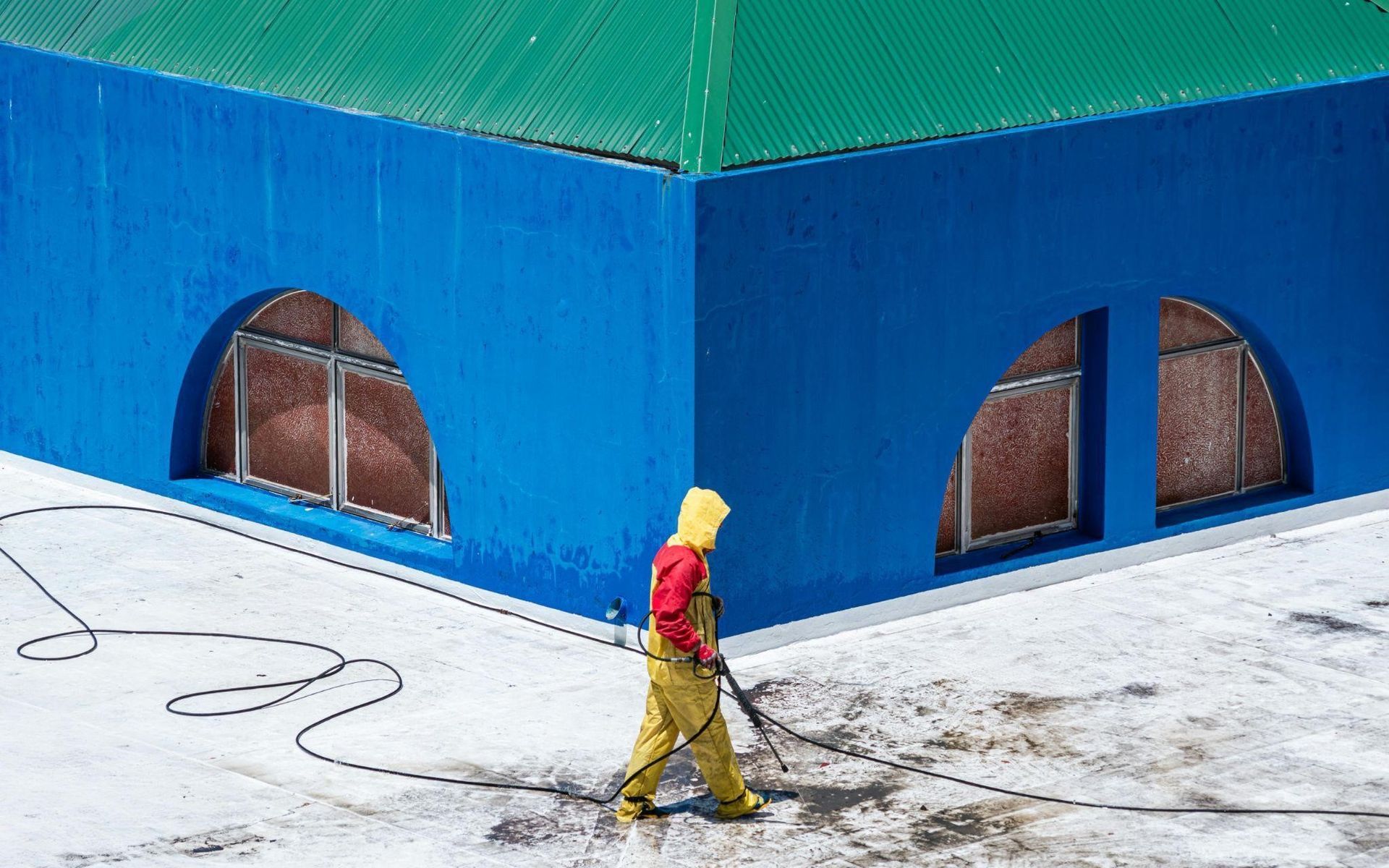How Often Should You Clean Windows for Best Results?
Windows play a crucial role in the overall look and functionality of a home or business, yet they often don’t get the attention they need. Over time, dust, pollen, and grime accumulate, reducing visibility and blocking natural light.
Establishing a regular window cleaning schedule helps maintain their clarity, improve energy efficiency, and prevent long-term damage. The frequency of how often to clean windows depends on several factors, including location, climate, and building type. Homes in urban or coastal areas may require more frequent cleaning than those in rural settings.
Finding the best window cleaning frequency ensures that your windows stay spotless and contribute to a cleaner, brighter environment. Whether you’re a homeowner looking to maintain your property’s appeal or a business aiming to leave a great impression, sticking to a well-planned cleaning routine is key to keeping your windows in top shape year-round.
Why Regular Window Cleaning Matters
Clean windows do more than just improve the look of a home or business—they contribute to a healthier and more comfortable environment. Regular window cleaning ensures that spaces remain bright and inviting. It also helps maintain the integrity of the glass by preventing long-term damage caused by mineral deposits and hard water stains.
For businesses, sparkling windows create a positive first impression, making the property appear well-maintained and professional. Homeowners also benefit from increased curb appeal, which can be crucial when selling a house. Clean windows improve visibility, making it easier to enjoy outdoor views without obstruction. Ignoring window maintenance can lead to dirt buildup, which becomes harder to remove over time. Investing in routine cleaning not only enhances aesthetics but also prolongs the lifespan of windows.
Factors That Affect How Often Windows Need Cleaning
Several factors influence how often to clean windows. Understanding these can help set a regular window cleaning schedule that keeps glass spotless without unnecessary effort.
- Location: Homes near busy roads, industrial areas, or construction zones gather dust and grime faster.
- Coastal Climate: Salt from ocean air can leave a hazy film on windows, requiring more frequent cleaning.
- Weather Conditions: Heavy rain, snow, and storms cause streaks and water spots that demand regular maintenance.
- Pollen and Allergens: Homes in areas with high pollen levels may see a seasonal buildup, especially in spring.
- Business vs. Home Needs: Storefronts and offices need frequent cleaning to maintain a professional look, while residential properties may require less frequent attention.
- Children and Pets: Fingerprints, smudges, and dirt accumulate faster in homes with active families.
- Urban vs. Rural Settings: City homes face pollution and grime, needing monthly cleaning, while rural homes may require fewer washes.
Signs That Indicate Your Windows Need Cleaning
Sometimes, sticking to a regular window cleaning schedule isn’t enough. Certain signs indicate that your windows need immediate attention. Ignoring these can lead to poor visibility, reduced air quality, and even long-term damage.
- Foggy or Streaked Glass: Dirt and grime buildup can make windows look hazy, reducing clarity.
- Water Stains & Smudges: Hard water spots and fingerprints block natural light and make windows appear unkempt.
- Increased Indoor Allergies: Dust and pollen trapped on glass surfaces may worsen indoor air quality.
- Sticky or Hard-to-Open Windows: Built-up dirt in tracks and frames can make operation difficult.
- Mold or Mildew Growth: Humid climates can cause fungi to develop around sills, requiring immediate attention.
- Business Exterior Looks Dirty: For commercial properties, visible dirt or customer complaints signal the need for frequent cleaning.
The Role of Weather in Window Cleaning Frequency
Adjusting cleaning schedules based on seasonal changes keeps windows clear and well-maintained. Weather greatly impacts how often windows need cleaning. Rain alone doesn’t dirty windows, but when mixed with dust and pollution, it leaves streaks. Storms and strong winds bring debris buildup, requiring more frequent cleanings. Snow leaves behind mineral deposits that dull glass, while pollen season coats windows in yellow dust. High humidity encourages mold growth, especially in shaded areas, while dry climates lead to static dust buildup.
Recommended Cleaning Schedule for Homes
Creating a cleaning routine ensures windows remain clear, enhancing both the home's aesthetic appeal and the overall indoor experience.
For most residential properties, cleaning windows quarterly is typically sufficient. However, homes exposed to higher levels of dust, pollution, or natural debris may require monthly cleanings. Coastal areas, in particular, benefit from monthly window maintenance due to the increased exposure to salt and moisture.
Interior windows often stay cleaner for longer, but areas prone to fingerprints, grease, or condensation—such as kitchen and bathroom windows—may require more frequent attention. Skylights and hard-to-reach windows also benefit from periodic deep cleaning to prevent buildup.
Homeowners should adjust their schedules based on their specific environment and lifestyle needs. Regular maintenance keeps the glass in good condition and prevents stubborn stains that require professional intervention.
How Often Businesses Should Clean Their Windows
Establishing a regular cleaning routine ensures a business remains visually appealing and professional, creating a positive environment for employees and customers alike.
Commercial properties have different cleaning needs based on their industry and location. Storefronts, restaurants, and retail spaces often require weekly or biweekly window cleanings to maintain a welcoming appearance for customers.
Offices and corporate buildings, especially those with large glass facades, benefit from monthly cleanings to prevent dust accumulation. Businesses in high-traffic areas or near construction sites should schedule frequent cleanings to combat dirt buildup. Medical facilities and hospitality establishments, such as hotels, should prioritize spotless windows for hygiene and professionalism.
Smudged or dirty windows can leave a negative impression on clients and visitors, affecting a company’s reputation. Professional window cleaning services help maintain a polished look while ensuring safety when dealing with large or high-rise buildings.
The Best Cleaning Methods for Streak-Free Windows
Getting streak-free windows requires more than just wiping them down—it’s about using the right tools, techniques, and timing. Here’s how to achieve spotless glass without frustration:
- Use the Right Tools: A microfiber cloth or a squeegee is ideal, as they prevent lint and ensure smooth application. Avoid using paper towels or newspapers, which can leave behind residue and streaks.
- Choose the Best Cleaning Solution: A mix of water and vinegar is a natural, streak-free option. For tougher grime, commercial window cleaners work well, but ensure they don’t leave behind a filmy residue.
- Pick the Right Time: Cleaning on a cloudy day prevents direct sunlight from drying the solution too fast, reducing the chance of streaks.
- Master the Technique: Wipe in a consistent direction—horizontal on one side and vertical on the other—to easily spot any missed spots.
- Reach Every Corner: For high or hard-to-reach windows, an extension pole is useful. If the job is too challenging, consider professional pressure washing for a thorough clean.
DIY Window Cleaning vs. Professional Services
When it comes to keeping windows clean, property owners often debate between doing it themselves or hiring professionals. While DIY window cleaning is a budget-friendly option, it has its limitations, especially for larger properties or hard-to-reach windows.
DIY Window Cleaning: A Cost-Effective but Limited Approach
For homeowners with ground-level windows, cleaning can be as simple as using a store-bought glass cleaner, a microfiber cloth, or a squeegee. It’s an affordable option that works well for routine maintenance. However, cleaning higher windows—such as those on a second story or above—can be tricky and even dangerous without the proper equipment. Using ladders to reach tall windows poses a safety risk, and without professional tools, achieving a streak-free shine can be difficult.
Why Professional Window Cleaning Stands Out
Professional window cleaners come equipped with specialized tools like water-fed poles, industrial-strength cleaning solutions, and deionized water systems that remove stubborn stains and hard water deposits. Their expertise ensures a thorough clean without streaks, smudges, or the risk of scratching the glass. Additionally, businesses and storefronts benefit from professional services, as clean, spotless windows create a polished appearance.
Which Option Is Right for You
While DIY cleaning may work for small-scale jobs, professional services offer efficiency, safety, and long-lasting results, particularly for larger homes or commercial properties. Though hiring experts comes at a cost, the convenience and superior finish often make it a worthwhile investment for maintaining crystal-clear windows all year round.
How Window Cleaning Contributes to Energy Efficiency
For both homes and businesses, regular window cleaning lowers utility costs and enhances efficiency. Clean windows maximize natural light and help regulate indoor temperatures. Dirty glass blocks sunlight, increasing heating costs in winter, while grime traps heat in summer, making cooling systems work harder. Keeping windows and seals clean prevents air leaks, reducing energy waste.
Final Thoughts: Avoid These Window Cleaning Mistakes
Many people make simple mistakes that leave windows looking worse than before. Using too much cleaner or spraying directly onto hot glass can cause streaks. Another mistake is using the wrong type of cleaner, such as ammonia-based solutions on tinted glass, which can cause fading over time. Lastly, waiting too long between cleanings makes dirt harder to remove, leading to a more time-consuming process.
With the right approach, you can enjoy clear, streak-free windows that enhance both the beauty and efficiency of your space.






